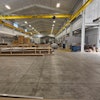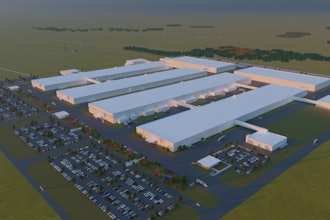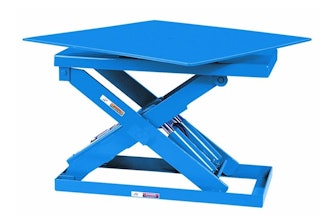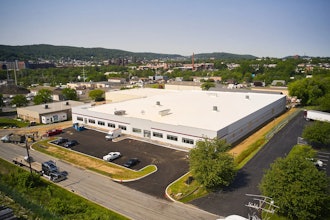TORONTO (CP) -- Although Chrysler Canada has no plans to follow the lead of its parent company and file for bankruptcy protection, the head of the Canadian Auto Workers says its plants will be forced to close until the company's U.S. court-supervised restructuring is complete.
Chrysler LLC said Thursday it will temporarily stop most of its vehicle production until it has completed a technology-sharing alliance with Fiat -- a cornerstone of its restructuring plan. The shutdown is effective Monday and could last between 30 and 60 days.
CAW president Ken Lewenza said that Chrysler Canada told him it plans to keep its plants operating until it runs out of parts, but he expects them to shut down "almost immediately," putting approximately 9,400 workers out of a job for as long as two months.
"We'll continue to run our plants as far as the supply chain will take us, but the industry is so integrated that we will be down almost immediately following the U.S. plants going down, no question," Lewenza said in an interview.
He said Chrysler's major suppliers stopped production as soon as they heard the company was filing for bankruptcy protection under Chapter 11 in the United States, leaving Chrysler's Canadian operations in the lurch.
"Whenever they're down in the United States I assume we'll coincide and follow that path because of the integration of the industry," he said.
Otherwise, little will change for Chrysler Canada as its parent company struggles to turn itself around under bankruptcy protection in the U.S.
Chrysler Canada spokeswoman Mary Gauthier said the company has no intention of filing for bankruptcy protection.
"We have been successful in reaching a number of important agreements with key stakeholders, including the CAW, dealers, and suppliers," Gauthier wrote in an email.
"As a result of these agreements, Chrysler Canada has reduced our costs and has established a competitive cost structure going forward."
Chrysler's restructuring under bankruptcy protection will be "a very targeted and surgical operation" that won't require the involvement of Chrysler Canada -- a wholly owned subsidiary of Chrysler LLC, said Derrick Tay, head of the restructuring practice at Ogilvy Renault LLP.
"Unlike other filings where you try and deal with all your obligations, the key aspects of the deal here have already been negotiated and agreed to by almost everybody," Tay said.
The company has already reached an essential agreement with Fiat and negotiated deals with its unions in both Canada and the U.S. The only holdouts preventing Chrysler from restructuring outside of bankruptcy court were a few bondholders, Tay said.
U.S. President Barack Obama's administration said it had long hoped to stave off bankruptcy for the third-largest U.S. automaker, but it became clear that a holdout group of creditors wouldn't budge on proposals to reduce Chrysler's US$6.9 billion in secured debt.
But Tay said the holdouts have no connection to Chrysler's Canadian operations so there's little reason to file for CCAA protection. At most, the company may file something called an ancillary proceeding that would protect it from any legal demands while its parent company restructures.
Tay added that consumers shouldn't assume the company is doomed simply because it has filed for bankruptcy protection.
"People should not misunderstand this. There are different types of bankruptcies, and bankruptcies are most effective when they're used simply to give effect to a plan that's already been agreed to by the majority of the creditors, and that's what's happening here."
But Bill Pochiluk, president of industry adviser AutomotiveCompass, said the term "bankruptcy" is enough to scare off many consumers, and Chrysler will have to work hard to win them back.
"The concern we've got is when you make that decision to go into bankruptcy, you basically take additional baggage that you have to manage relative to any damage you're doing to the brands," Pochiluk said.
"They're going to have to do something really quite exceptional to keep in the good graces of people who want to buy a vehicle."
Pochiluk added that the temporary shutdown of all of Chrysler's plants could push some parts suppliers -- many of which are already on the brink -- "off a cliff."
"I think some very credible, very strong historic businesses will fail because they're going to run out of their lifeblood, called money, and this is going to be made worse by a potential shutdown of 30 to 60 days," he said.
The federal and Ontario governments announced Thursday they will invest a total of C$3.8 billion in the company.
Under Chrysler's restructuring plan, Canada and Ontario will share a two per cent equity stake in a restructured Chrysler LLC and will provide US$2.42 billion in new financing to help the company survive. The U.S. government will own eight per cent of the company.
The investment brings Canada's total contribution to the survival of Chrysler so far to C$3.775 billion. The U.S. is contributing US$8.08 billion.
The government aid is part of a broader restructuring that saw the Detroit-based automaker file for bankruptcy protection in the U.S. as it streamlines operations, deals with its financial debts and completes an alliance with Fiat that will help the company produce small, more fuel-efficient cars in North America.
Chrysler is seen as the weakest financially of the so-called Detroit Three carmakers, a group of companies that includes General Motors and Ford Motor Co. The entire industry has been battered by the recession, slumping vehicle sales, shifting consumer tastes and a credit crunch that has made it more difficult for consumers to finance car purchases.
Chrysler Canada operates three plants in southern Ontario where it employs about 9,400 people in Windsor, Toronto and nearby Brampton.

















